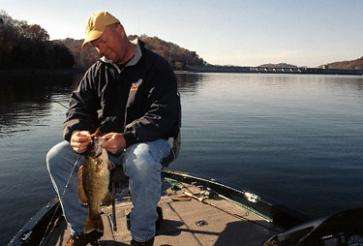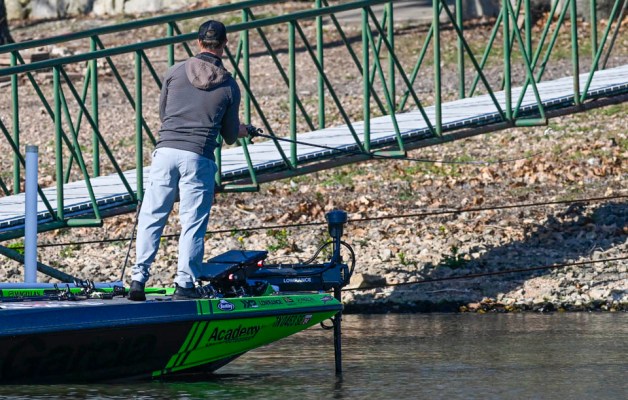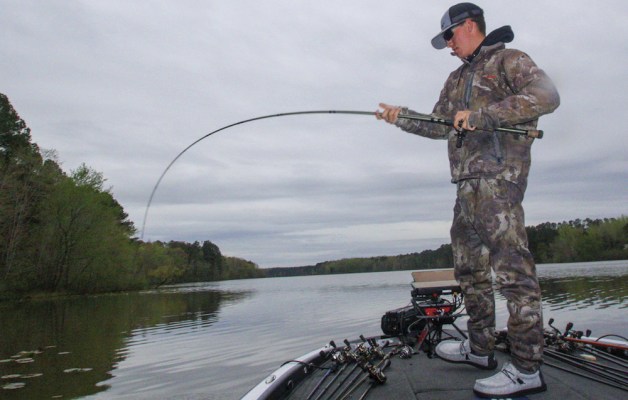
Last time we talked about some night fishing basics. I mentioned the importance of fluorescent line, fishing in the shade and keeping your rod, reel and lure selection to a minimum.
This week I’m going to cover some advanced ideas that can really make all the difference. A lot of guys fish at night, but most of them are really just casting in the dark. They’re not doing the things that will impact their fishing enough to justify losing all that sleep. If you’ll make these adjustment and follow these techniques, I can just about guarantee that your night fishing will improve.
And if you take my ideas and really apply them to your waters, making the little tweaks that are necessary anytime you change lakes, they’ll be like the difference between night and day!
The first thing I want you to do at night is to be quiet. Nothing’s quieter than a summer night on the water, and nothing can disturb that quiet and ruin fishing quite like stumbling and bumbling your way to a bass feeding area. There might be dozens or even hundreds of big smallmouths feeding in an area, but if you roar up with your big engine, trip over your landing net and kick your trolling motor over the side, nothing on God’s green earth is going to make those fish eat for the next hour.
Go slow. Be deliberate. Turn your electronics off if you know the area well and don’t need them. I’ll even take my shoes off sometimes to keep from stomping around in the boat.
Another thing I do after dark is move into position and just wait for a few minutes. Have you ever been awakened in the middle of the night and lay there in bed waiting for the next sound rather than get up and check it out? If things stayed quiet you probably went right back to sleep. I think smallmouths are like that. They hear the noise from your boat and are on alert. They stop what they’re doing for a few minutes to find out what’s going to happen. If you get in a big hurry, all kinds of lures start falling out of the sky and hitting the surface above them, scaring them. But if you wait, they let their guards down and go right back to feeding or whatever they were doing.
You can talk your head off after dark. I don’t believe that those kinds of sound waves penetrate the water. But drop a pair of pliers or a livewell lid, and you might as well have thrown concrete blocks into the lake from a passing plane.
The second thing I want you to do out there is to slow down. Smallmouths are sight feeders. They generally need to see their prey to eat it, and after dark that’s not nearly so easy. Crawl your bottom-bumping lures like jigs and craws across the bottom very slowly. Fish your swimming baits with a steady, rhythmic cadence. By doing this you’re giving the fish a better chance to zero-in on your baits. That gives you a better chance to catch them.
Finally, I want you to be extra patient. During the daytime, there’s lots to see, and you can tell when you’ve just made a great cast or if some good-looking girl in a bikini is sunning on the back of a boat. At night, you can really only see your line under the black light, so time can pass really slowly. Don’t let it get you down.
Night fishing can turn around quickly. An area that was as dead as a hammer for an hour can be the hottest spot you’ve ever seen the next hour. But you’ll never know it unless you tough it out.
Until next time, if you have any questions or comments, I’d love to hear from you. Please e-mail me atStephen@thesmallmouthguru.com.





